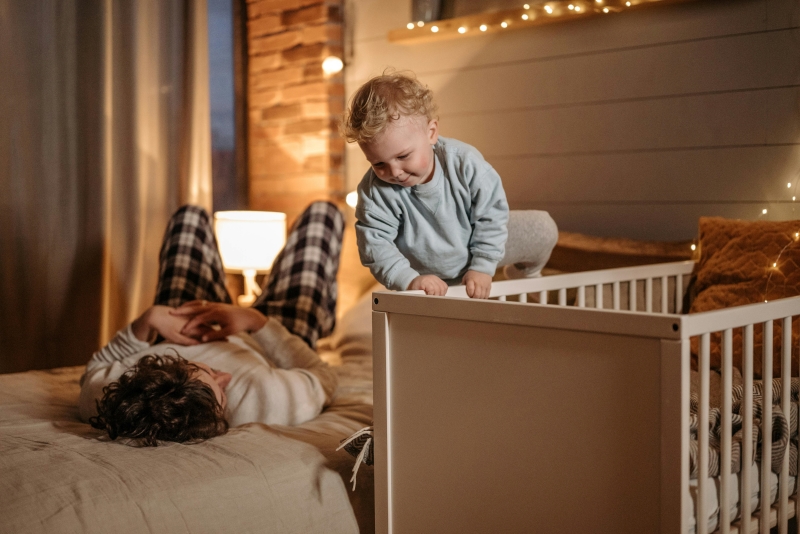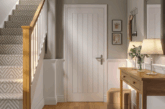
Victoria Brocklesby, COO at Origin, the UK’s leading manufacturer of bespoke aluminium windows and doors, discusses why homebuilders that prioritise child safety when choosing suppliers have a lot to gain.
Each year, thousands of children are admitted to A&E with an injury that occurred at home. Millions more incur minor scratches and bumps due to incidents they’ve had around the house. Although accidents are a part of growing up, experimenting and testing boundaries are important for children’s development. However, most are completely preventable, and they are a worry for parents. Luckily, many of these accidents can be prevented in the build stage of a property.
Understanding children’s developmental stages
Much emphasis is put on baby proofing a home when children begin to crawl, but the truth is, there is danger in the home at all stages of development. So that housebuilders can effectively understand how to prevent home-based injuries, it’s important to know what contributes to them in the first place.
Every day, children are learning new things and pushing the boundaries of what they can do. They are curious and don’t feel fear or have the same concept of consequence as adults do. Children are also just physically more fragile than adults.
The Child Accident Prevention Trust (CAPT) has identified two main links between accidents and child development:
- Physical development – children’s skin is thinner than adults, their bodies process poison differently, and their heads are proportionally bigger and heavier.
- Cognitive development – they are still learning risk and consequence, and their ability to judge elements like distance and speed is still developing.
Top dangers in the home and how to design them out of a build
There are many potential risks in the home for young children. Some of the biggest include:
- Traps – doors and cupboards are a key reason that children trap their fingers and hands. Our research shows that children account for 25% of all hospital trips for hand or wrist injuries, with the Royal Society for the Prevention of Accidents (RoSPA) estimating that 30,000 children trap their hands in doors each year. Opting for doors with added safety features, like Origin’s aluminium bi-fold doors that feature finger-safe gaskets, will put prospective homebuyers minds at ease that their children will remain unharmed even if their fingers do get caught.
- Falls – children love to explore their surroundings, which can lead them to climb on furniture, windowsills, stairs, or countertops. When it comes to windows, it’s best to install systems that offer safety latches and restrictor hooks, such as Origin’s Premium Window (OW-80). This allows families to limit the window’s ability to open fully which means children cannot fall out.
- Slips/trips – still navigating their balance and often running around, children naturally slip and fall, but this can be more likely on certain types of flooring. For example, marble tiles are notoriously slippery, even for adults. To avoid serious injury, install non-slip alternatives, such as porcelain, as standard if supplying the flooring for your projects. Thresholds can also present a trip hazard. So, if installing a bi-fold or sliding door to a new-build home, it’s best to opt for a system that offers a low threshold option, like the Origin Bi-fold Door. This is also beneficial to older members of the family who may have mobility issues.
Final thoughts
It’s much easier to design a home with children in mind than to retrofit safety features, especially when it comes to elements like doors which would be expensive and wasteful to replace. Families can spend into the thousands on safety proofing a home, so designing new-build homes with safety in mind will not only mean homebuyers save in the future, but it will be a draw for them. Even if there aren’t currently little ones running around, couples often plan on having children or selling to another family in the future, so it’s worth thinking holistically about the home during the design phase so that’s it’s prepared for the generations to come.
Get in touch with Origin to find out more.








